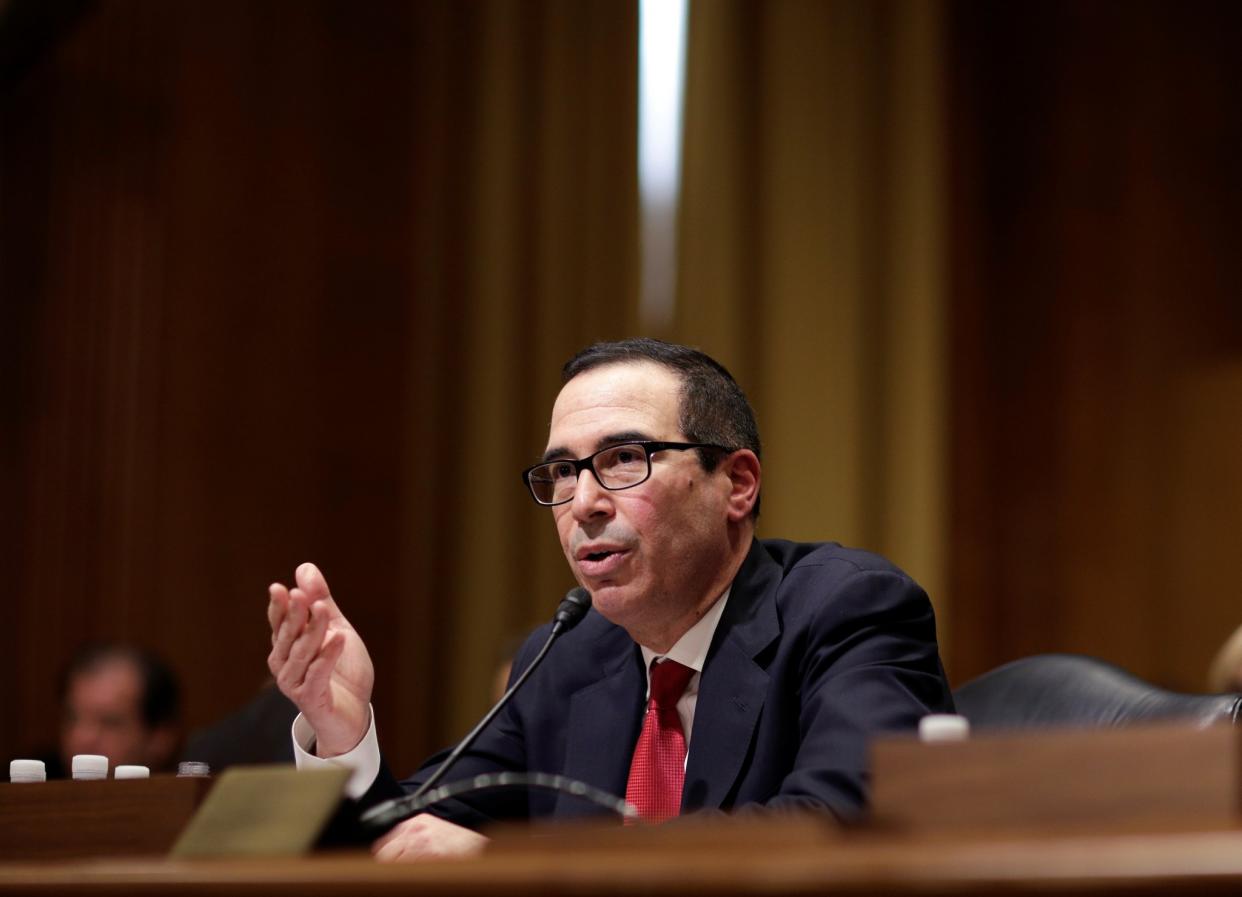Stories to watch: The GOP establishment’s hopes for tax reform

Donald Trump is in the White House, and Yahoo News is taking a look at the top stories to watch in his first 100 days. From the unusual role family members will play as White House advisers to his promises to aggressively transform U.S. trade policy, and from investigations into Russian interference in the election to his relationship with Paul Ryan, we’ll be rolling out 15 stories over five days — signposts for the road ahead.
_____
THE STAKES
During an unconventional presidential campaign, perhaps no platform advanced by then-candidate Donald Trump was better received by establishment Republicans than his plans to cut taxes. Trump has pledged to cut taxes for families earning less than $50,000, to eliminate the so-called “death tax” and to simplify the tax code. According to the Trump team, this would eliminate federal income taxes for over 50 percent of U.S. households.
And no issue has had Wall Street and market watchers more intrigued than Trump’s proposal to cut the federal corporate tax rate to 15 percent from 35 percent. An analysis from Goldman Sachs said such a cut could result in a 26 percent increase in S&P 500 earnings in 2017. A boost to earnings of this magnitude could support a 15 percent rise in stock prices without any increase in valuation, according to Goldman’s report, published shortly after the election.
_____
THE STORY
The current House Republican-supported tax plan has proposed a corporate tax cut down to 20 percent. On the individual tax front, the plans are roughly similar. On the corporate side, any legislation is likely to aim to achieve not only lower tax rates, but to make it less attractive for companies to either park foreign earnings overseas or move their corporate headquarters abroad for tax reasons.
The Obama administration’s Treasury Department put in place rules to make “corporate inversions” — transactions in which U.S.-based companies move corporate headquarters overseas to enjoy lower foreign corporate tax rates — less attractive. Goldman Sachs notes that, like Obama’s rules, Trump’s proposal would end the deferral of foreign earnings and thus make inversions less advantageous while allowing foreign tax credits against U.S. taxes.
When it comes to trade, however, a new tax environment in 2017 could make things quite a bit more interesting. The House Republican plan would see the U.S. corporate tax code shift from an “origin-based” taxation system to a “destination-based” system. What this shift would most simply do to American business is favor goods either exported or made and sold in the U.S. over imports.
Potential issues arise, however, given the United States’ obligations as a member of the World Trade Organization. The WTO does allow value-added taxes, which are basically taxes incurred during the production of a good and can be rebated upon export or charged upon import. But opponents of this plan have argued that shift would not be a value-added tax but instead a border-adjusted income tax, which is prohibited under the terms of the WTO.
The effective result could see exports be more or less tax-exempt while imports remain subject to taxes, a dynamic that would seem to fit Trump’s pledge to “Make America Great Again” but would likely run afoul of international trade agreements.
_____
THE PLAYERS
Aside from Trump, the main players on taxes will be House Speaker Paul Ryan, R-Wis., House Ways and Means Committee Chairman Kevin Brady, R-Texas, and Treasury Secretary nominee Steven Mnuchin. Shortly after the election, Brady said that the Trump and House plans were “kissing cousins” and assured attendees at a conference that “tax reform is going to occur in 2017.” Mnuchin told CNBC in November that Trump would propose the biggest tax overhaul since the Reagan administration.
____
Read more from Yahoo News:
For second day, protests erupt in New York over Trump immigration order
Trump mocks Schumer for crying during speech protesting his immigration ban


